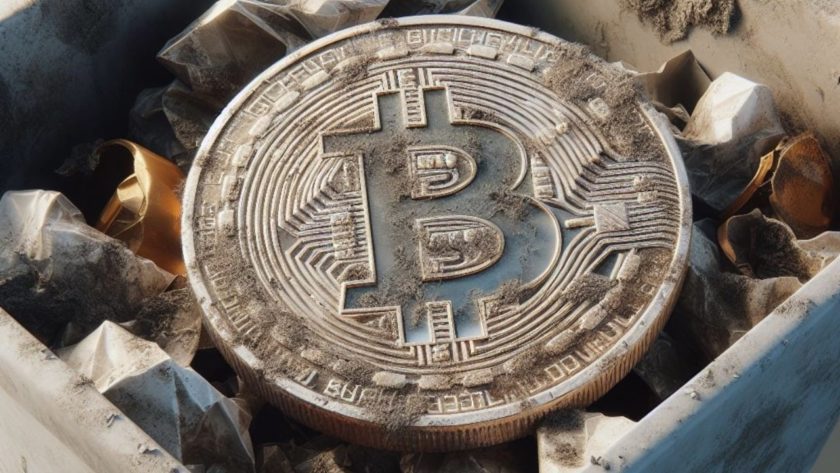Decentralized finance (DeFi) is exploding. The amount of capital locked in DeFi, an imperfect yet useful measure of traction, recently hit all time highs of $35 billion.
Today, Ethereum is the dominant network for DeFi in all important metrics, including capital flows, locked capital, number of projects and developers.
Alex is a co-founder at Zabo, a platform enabling fintechs and financial services companies to easily connect cryptocurrency accounts to their applications.
The exploding growth in DeFi has stoked an already fierce battle among smart contract platforms, aka “Ethereum-killers,” to win share of the emerging category.
Tushar Jain, partner at the crypto venture firm Multicoin Capital recently made comments on Twitter calling into question Ethereum’s DeFi dominance:
Jain’s view is held by many smart investors and can be summarized as: eventually higher performance, better designed, less expensive networks will start to eat into Ethereum’s DeFi market share.
Indeed, investors have poured billions into competing smart contract platforms in support of this exact thesis.
Yet, despite many competing platforms launching and deploying vast amounts of capital in their efforts, Ethereum’s network effects and moat are inexplicably as strong as ever. How is this possible?
It’s possible because Ethereum has powerful intangible assets that are incredibly difficult to reproduce and compete with.
This isn’t a new dynamic – intangible dominance has long been observed and impacted traditional markets and companies too.
Coca-Cola, Google and… Ethereum?
You can generally split up assets into two categories: tangible and intangible.
Tangible assets are physical in nature – things like money, equipment and servers. For computer networks, a tangible asset might include how much computational power can be delivered or how fast a query can be run – things based on underlying physical properties of the network. Given tangible assets’ physical nature, they are quite easy to quantify and measure.
By contrast, intangible assets do not exist in physical form – such as intellectual property, brand recognition and trust. Intangible assets can be very difficult to quantify, making it harder to spot their influence on final outputs like earnings or number of connections in a network. Intangible assets can also be incredibly difficult to replicate, because their creation often relies on something far more complex, like the thoughts of a human brain.
Investors have long known that successful companies have strong intangible qualities giving them the ability to accrue outsized value and stay highly competitive for long periods.
Consider a company like Coca-Cola. Imagine you created a cola that tasted even better than Coke (“higher performance”) and supplied enough capital to build a better world-wide distribution network to rival Coca-Cola’s (“more scalable” and “less expensive”).
Investors have long known that successful companies have strong intangible qualities giving them the ability to accrue outsized value
Would that enable you to convince most existing and new cola drinkers to make the switch off Coke?
Coca-Cola’s tangible assets – the raw ingredients that make up Coke’s taste, packaging and distribution – are not what secure the company’s dominant market position alone. Coke is dominant today because of intangible assets: its universal brand awareness, customer loyalty and the way it makes people feel. Those are incredibly hard to reproduce.
Yet, Coke is a consumer brand. What about technology? We find the same trend there, too.
Google is a clear example of intangible dominance in a technology market. While Google is widely viewed as having the best technology (part of its brand and thus intangible), like Coke, its brand is so strong that it became a generic term (“google it”).
Today, more than 20 years after Google was founded, competing search engines still languish behind Google’s 85%+ market share. Why? Unassailable intangible assets, including brand, trust and existing search volume, which together form part of the moat that enables Google to continually maintain superior tangible assets over long periods.
Ethereum the intangible
What about open source networks? Do the same rules apply?
In open source networks, there are far fewer intangible assets to work with. There are no patents or intellectual property that make one network better than the other. All networks compete on a vast, completely open plane, viewable and copyable by all.
Initially it may seem that this makes tangible assets, such as network speed, computational power or capital availability more valuable.
But it’s quite the opposite. Tangible assets are more easily reproduced in open-source software than just about anywhere else. Just as in traditional businesses, intangibles are king in open source.
Competing networks are quick to point out tangible weaknesses in Ethereum’s network: high transaction fees (not cheap), lack of scalability (not fast) and even easily fudgable smart contracts (not secure).
But they fail to fully appreciate that Ethereum’s immense intangible assets are the real moat behind its dominance:
- A vast, rapidly expanding interconnectedness, of developer energy (proof of work), capital, assets and projects (akin to Google’s existing search volume moat)
- A cryptocurrency brand second only to Bitcoin (the category leader) and the dominant brand in DeFi where Ethereum is far and away the category leader
- A fanatically loyal community that includes the most dominant network of developers and projects in the entire crypto industry.
Attacking primarily on a tangible basis – “better technology” and more resources – will not knock Ethereum from its dominant position anymore than “better cola” or “better search results” will unseat Coke or Google. The intangible moat at this stage is simply too wide, giving Ethereum free range to continue building compounding tangible infrastructure.
Many well-capitalized, super talented and well-meaning teams have built and launched networks that have struggled (so far) to put a dent in Ethereum’s DeFi dominance. What most of these attempts have in common is they assume that producing superior tangible outcomes in the same categories Ethereum owns will be the strategy to win.
What about new users?
Jain’s comment importantly makes the distinction of “new DeFi users,” implying that Ethereum’s dominance won’t last as DeFi grows and there are many new participants.
Yet, we don’t have to look farther than Bitcoin to see the opposite precedent.
Similar to Ethereum, and for twice as long, Bitcoin has confronted and ultimately out-competed every contender to the throne of the dominant, decentralized, store-of-value network. Similar to Ethereum, Bitcoin has constantly been attacked over the perceived limitations of its network, including that it’s too slow and not scalable.
The intangible moat at this stage is simply too wide, giving Ethereum free range to continue building compounding tangible infrastructure.
Yet despite a seemingly infinite number of tangible iterations, every Bitcoin competitor has failed to generate an intangible moat of significance in brand, awareness, trust or adoption. Instead of faltering, Bitcoin has dominated the market with a more than 60% share by market cap. Bitcoin’s brand of “digital gold” has become so powerful that not even gold itself can escape Bitcoin’s intangible gravity.
Twelve years and thousands of competitors later, Bitcoin continues to convert an outsized portion of the incremental crypto user.
The only network with a brand, loyal following and network effects similar to Bitcoin is Ethereum. It obtained them by creating completely new categories – smart contracts and DeFi – that did not compete with Bitcoin directly. If Bitcoin and internet businesses with powerful, intangible network effects are any indication, we’re headed towards more dominance for Ethereum, not less, driven by an ever expanding intangible moat.
So what’s a competing technologist to do? Stop building? Stop investing?
Technologists should keep building and investing in new categories where the authenticity of their product and vision will attract not just users, but loyal followers.




